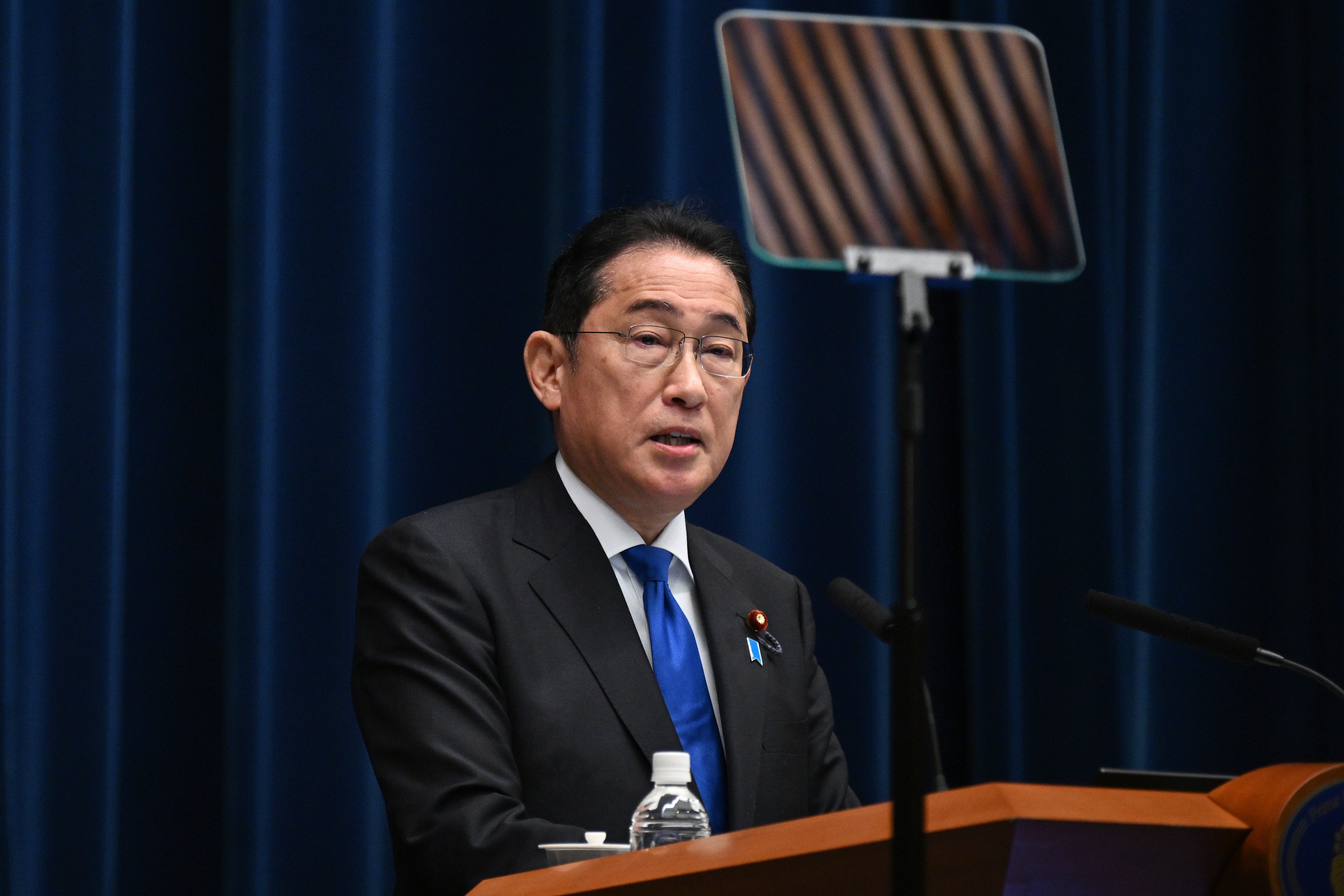Japan’s PM Fumio Kishida quits to save his party after years of scandal
Kishida had been facing growing calls to resign as his approval rating dipped
Your support helps us to tell the story
From reproductive rights to climate change to Big Tech, The Independent is on the ground when the story is developing. Whether it's investigating the financials of Elon Musk's pro-Trump PAC or producing our latest documentary, 'The A Word', which shines a light on the American women fighting for reproductive rights, we know how important it is to parse out the facts from the messaging.
At such a critical moment in US history, we need reporters on the ground. Your donation allows us to keep sending journalists to speak to both sides of the story.
The Independent is trusted by Americans across the entire political spectrum. And unlike many other quality news outlets, we choose not to lock Americans out of our reporting and analysis with paywalls. We believe quality journalism should be available to everyone, paid for by those who can afford it.
Your support makes all the difference.Fumio Kishida has announced he will step down as Japan’s prime minister after three years in office marred by political scandals, saying his exit is “what is best for the public”.
The 67-year-old’s surprise departure paves the way for a new leader of his governing Liberal Democratic Party (LDP), which currently controls both houses of parliament but has seen support dwindle.
“I will devote myself to supporting the new leader ... as a foot soldier,” he said, urging party unity to rebuild public trust. “We need to clearly show an LDP reborn. In order to show a changing LDP, the most obvious first step is for me to bow out.”
Slumping support for Mr Kishida dipped his approval rating to below 20 per cent. The prospect of electoral defeat had seen growing calls within the party for an alternative fresh face ahead of the next general election, due by the third quarter of 2025.
“The new leader needs to be a fresh face, whether that means young or not associated with Kishida, and reform-minded,” said Rintaro Nishimura, an associate at Washington-based strategic advisory firm The Asia Group.

Mr Kishida was under scrutiny by party members for the handling of a scandal involving hidden slush funds in which more than 80 LDP lawmakers, mostly belonging to a major party faction previously led by assassinated former prime minister Shinzo Abe, are accused of being involved.
He removed a number of cabinet ministers and others from party executive posts, dissolved party factions and tightened political funding laws – but despite his efforts, public support for his government ebbed away and the party suffered losses in local elections earlier this year. Major losses in Tokyo metropolitan assembly elections in July added to the malaise.
Mr Kishida’s decision will trigger a contest within the party to replace him as party boss, and by extension as the leader of Japan.
The successor the LDP chooses is set to face challenges of increases in living costs, escalating geopolitical tensions, and the potential return of Donald Trump as US president next year.
Former defence minister Shigeru Ishiba has so far expressed his intention to run as the LDP president. He remains a popular face among the public after his stint as number two within the ruling party. Polls published by local media over the past several weeks showed Mr Ishiba, 67, was the most popular candidate.
Others who have expressed interest included digital transformation minister Kono Taro, foreign minister Yoko Kamikawa, and Shinjiro Koizumi, the son of former prime minister Junichiro Koizumi.
“He’s been a dead man walking for quite some time,” said Michael Cucek, a professor specialising in Japanese politics at Temple University in Tokyo. “There was no way to add up the numbers so that he would get re-elected,” he added.
Three of the rumoured candidates to replace Mr Kishida – something that raises hopes for a breakthrough in Japan’s male-dominated politics.
Experts say that the LDP’s need to change its image could push it to choose a female prime minister. Only three women have run for the party’s leadership in the past, two of whom ran against Mr Kishida in 2021.
Only 10.3 per cent of the members of the lower house of Japan’s parliament are women, putting Japan 163rd for female representation among 190 countries examined in a report by the Geneva-based Inter-Parliamentary Union in April.
The Bank of Japan unexpectedly raised interest rates to around 0.25 per cent in July, as inflation took hold, leading to stock market instability and sending the yen sharply lower.
Mr Kishida’s exit could mean tighter fiscal and monetary conditions depending on the candidate, according to Shoki Omori, chief Japan desk strategist, at Mizuho Securities, Tokyo.
Reuters and Associated Press contributed to this report

Join our commenting forum
Join thought-provoking conversations, follow other Independent readers and see their replies
Comments